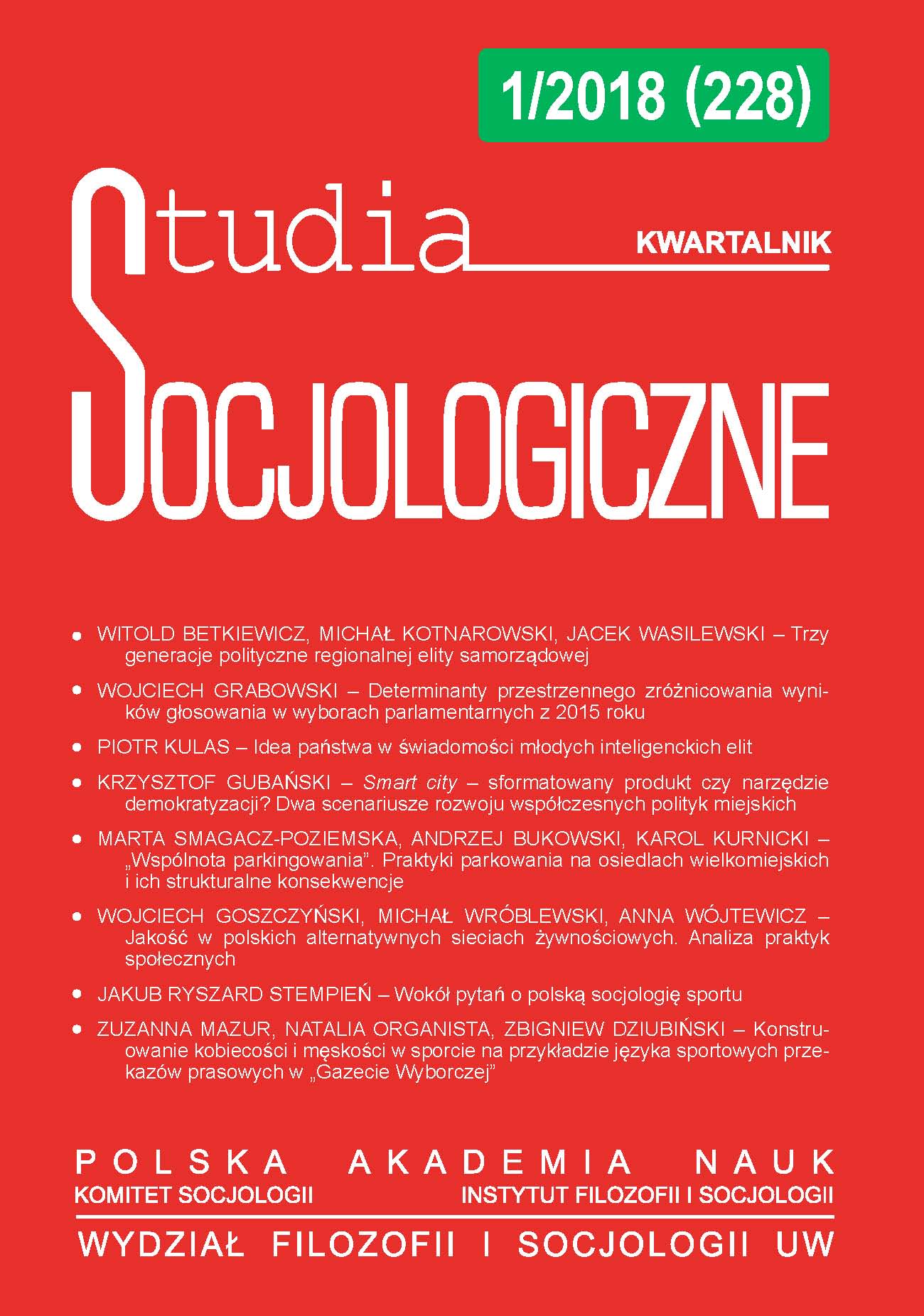Smart city – sformatowany produkt czy narzędzie demokratyzacji? Dwa scenariusze rozwoju współczesnych polityk miejskich
Smart City – A Formatted Commodity or a Tool of Democratization? Two Scenarios for the Development of Contemporary Urban Policies
Author(s): Krzysztof GubańskiSubject(s): Rural and urban sociology, Sociology of Politics
Published by: Instytut Filozofii i Socjologii Polskiej Akademii Nauk
Keywords: urban sociology; urban studies; smart city; datafication; new technologies
Summary/Abstract: This paper retraces the concept of smart city that emerges from an analysis of materials distributed by authorities, public administration and companies supplying new technologies for cities. The first part of this article presents the origins of the smart city concept that go beyond the narrowly understood development of IT, and involve changes of modern cities, urban regimes, economic models, new development policies, cognitive capitalism and the role of contemporary urban space in global value chain. Next, the idea of smart city is confronted with critical arguments regarding decision-making processes, discretionary power, information control, social segregation, cyber security and monopoly on technology. As an outcome, two polarized models of smart city development are outlined. The first scenario foresees the oligopoly of technology companies and smart city as a highly-formatted and less susceptible to modifications IT product. The second scenario is a vision of democratic „anarchy”, open access technology, paradigm of openness and constant modification of solutions, deregulation of data access. Both models are seen as rhetorical figures that allow to outline key decisions faced by managers of contemporary cities, which are quickly becoming the focal points of global discussion on the relations between new technologies and urban policy.
Journal: Studia Socjologiczne
- Issue Year: 228/2018
- Issue No: 1
- Page Range: 99-116
- Page Count: 18
- Language: Polish

